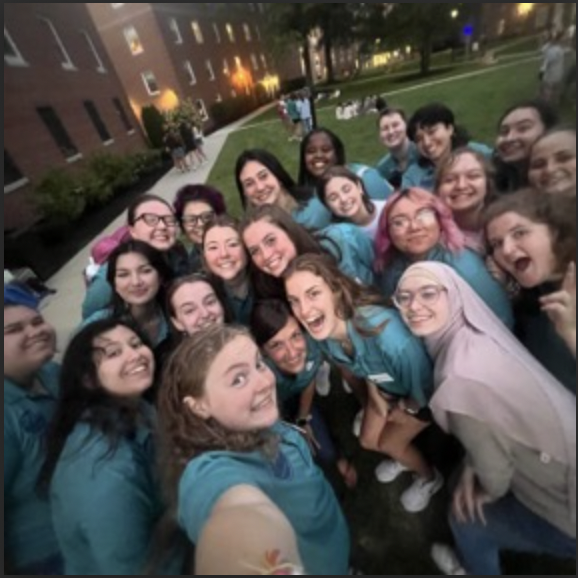By Katie Sittig-Boyd
Staff Writer
On Oct. 9, the Grace Hopper Celebration was held in Phoenix, AZ. Named after Rear Admiral Grace Hopper, a pioneer in computer science and a fantastically interesting person in general, the conference celebrates women in computing. Of all 8,000+ attendees, 94 percent were female, according to conference attendance data.
However, there were a number of male-centric conference sessions, including the infamous “male allies” panel, which featured the CEO of GoDaddy as one of the panelists in spite of the Super Bowl ad controversy earlier this year.
The plenary talk that made national news, however, was when CEO of Microsoft Corporation Satya Nadella was asked about how women should navigate asking for raises.
“It’s not really about asking for a raise, but knowing and having faith that the system will give you the right raise,” Nadella told the audience of befuddled and frustrated female computer scientists.
Obviously this is not the case, and women keeping their heads down in the workplace will not lead to better salaries, promotions, or anything else beneficial in a company context. But one crucial aspect that “The New York” Times left out of this story was the response.
Nadella was not the only speaker on the panel; Maria Klawe, a computer scientist and current president of Harvey Mudd college, was also present. As soon as Nadella finished his “trust karma for a raise” spiel, she said, “It’s nice that you said that, but I entirely disagree.”
Klawe went on to describe her own experiences in being forthright in asking for deserved promotions, and provided the women at the conference (94 percent, remember—over 7,000 women),
“First of all, do your homework. . . know what the appropriate salary is.”
It is well documented that women earn less money than their male counterparts across the board. Similarly, it is important to note that big-name companies like Google, Apple, and Microsoft have abysmal employment statistics when it comes to their hiring and retention of female employees; they all float at approximately 30 percent female employees (or lower, in the case of Google, which boasts an employment rate for women at a flabbergasting 17 percent).
There are certainly concerns in the tech industry that women are not respected in a professional context; that hiring rates are horrendously low for female computer scientists; and that salary-wise, women deserve more.
But there is another problem. The Grace Hopper Celebration is focused on the accomplishments of women in the tech field (both industry and research), but the only parts of the conference that have made national news have barely mentioned women in them at all.
For instance, “The New York Times” ran a piece condemning Nadella’s comments, citing employment numbers and criticizing his outlook on female empowerment in the workplace. But the article made no mention of Maria Klawe’s excellent advice, which is arguably more valuable to women than the constant reminder that they are unlikely to be promoted in the current workplace environment.
We already know this. I think an important takeaway from the Nadella blunder is that, yes, surprise: Microsoft as a corporation does not strive to promote an environment in which women are respected professionally. But anyone in tech could have told you that if you had asked.
What is striking to me is that the majority of news about the Grace Hopper Celebration centers on Nadella. Although many articles discuss Nadella’s naive comments and are either vaguely apologetic (he did release an apology on Twitter, and some news outlets have embraced this), or critical of the sexist environment of the tech industry as a whole.
But I think it is telling that there are no articles acknowledging the accomplished women who also spoke at the conference. There is no mention of Megan Smith, Chief Technology Officer of the U.S., who also spoke on Thursday, just before Nadella. Articles do not discuss DARPA’s Arati Prabhakar, who discussed very eloquently the advances DARPA has contributed to national security, or Shafi Goldwasser, an MIT professor who is a skilled cryptographer. These women are high achievers in their field and deserve just as much—if not more—attention for what they have contributed to computer science.
Rather than focusing on the inevitable fumbling attempts men make at being “allies” to women in technology, we should celebrate the successes of female computer scientists who strive to make contributions to technological research, web development, educational outreach, and all other technical endeavors at which many women excel.
The purpose of the Grace Hopper Celebration is to highlight the achievements of female computer scientists. Rather than letting one poor-spoken man have the spotlight, we should speak up about all of the women who still get talked over in favor of discussing the failures of men.






















Patty • Oct 23, 2014 at 12:40 am
FYI: There will be a mass GoDaddy exodus in November. This company does not deserve your business.